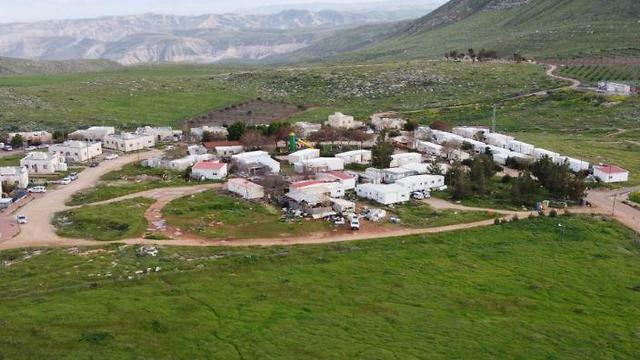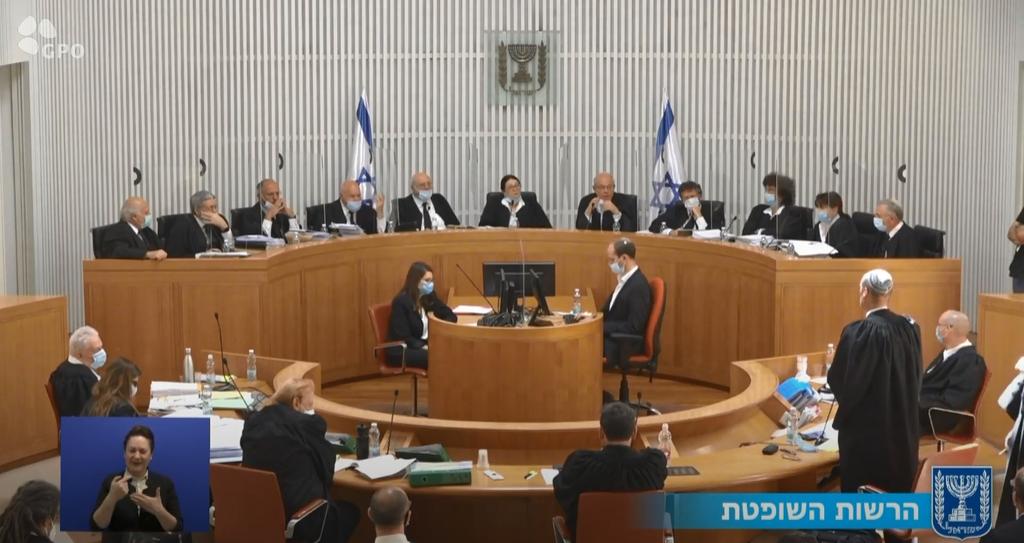Getting your Trinity Audio player ready...
The High Court's Tuesday ruling to strike down a law that had retroactively legalized about 2,000 settler homes built on privately-owned Palestinian land in the West Bank best showcases the constitutional crisis that the State of Israel has found itself in.
Judges continue to dive deeper and deeper into issues of policy and morals. The court leads a political agenda and seeks to take part in moral decisions that have nothing to do with the rule of law.
4 View gallery


Mitzpe Kramim, one of the settlements affected by the regularization law
(Photo: Courtesy of Mitzpe Kramim)
This constitutional crisis does not stem from the fact that the court granted itself the authority to criticize primary Knesset legislation and the need to protect the rights of the Palestinians, but rather from the kind of criticism the court voices.
The court was well aware that it had entered a debate on Israel's most controversial political issue, but its ruling was worded in such a way as if it were a settlement on Mars that Israeli space forces had invaded and captured in war.
The verdict opened with a review of the law in the West Bank and discussed it without mentioning that it is a contested territory whose legal status has been debated since the inception of the state and Israel has claims to it.
For a moment there, one might think that maybe the judges wanted to bolster the claims that they were discussing an issue that they had no part in and represent fringe political views on purpose to showcase their great power over Knesset.
4 View gallery


Map of buildings in Modi'in-Illit affected by the regularization law
(Photo: Regavim)
The judges' political rulings are, first and foremost, reflected by the odd timing they were published. In a staggering coincidence, in the passing month, the court annulled the deposit law in a petition filed three years ago, the West Bank regularization law enacted three years ago, and grants for culture shows in the West Bank that were set four years ago – and all this before the main course – the upcoming court hearing on the Nation-State Law.
In other words, the court waited for a new government to undo the previous one's policies. This unusual coincidence raises suspicions that someone in the Supreme Court is operating out of political interests and not out of their understanding of the law.
The court ruling on the regularization law continues a worrying new trend: the court signals to Knesset that it is willing to strike down any legislation that it deems inappropriate.
The judges explained that the Knesset's considerations regarding the regularization law were invalid. According to the judges, the Knesset's desire to regulate construction for national-political reasons, seeking to prevent massive evacuations, is improper.
Knesset's main work tool is legislation that fulfills the will of the public and ruling on moral issues based on the current political balance. The legislative process starts when Knesset identifies a social problem that the legislature seeks to resolve.
Until recently, the court made sure to intervene only on the execution of the law and criticize the solution when it deemed it was disproportionately violating human rights. Bur recently, the court began to intervene on the laws themselves and rule that the very goals that Knesset seeks to promote are wrong.
The court grades Knesset for the goals it seeks to achieve in its legislation and rules out laws only because it does not sympathize with the need that lawmakers recognize.
Tuesday's ruling also seeks to impose new and unpredictable restrictions on Knesset through the subordination of Israeli law to international law. The fact that international law is an undefined set of norms that develops without Israeli control over it while severing the ties between the sovereign (Israeli citizens) and the laws it lives by – shows that judges are not afraid to introduce their alternative to the democratic process, where the sovereign decides what laws to live by through its representatives.
One cannot keep claiming that the court acts professionally and non-politically while such predictable rulings continue to see the light of day.
A political court that chooses to act at the heart of the political arena is bound to become politically elected. It may take time, and it is probably impossible under the current Knesset, but the change will come. It is a necessary by-product of these rulings.



